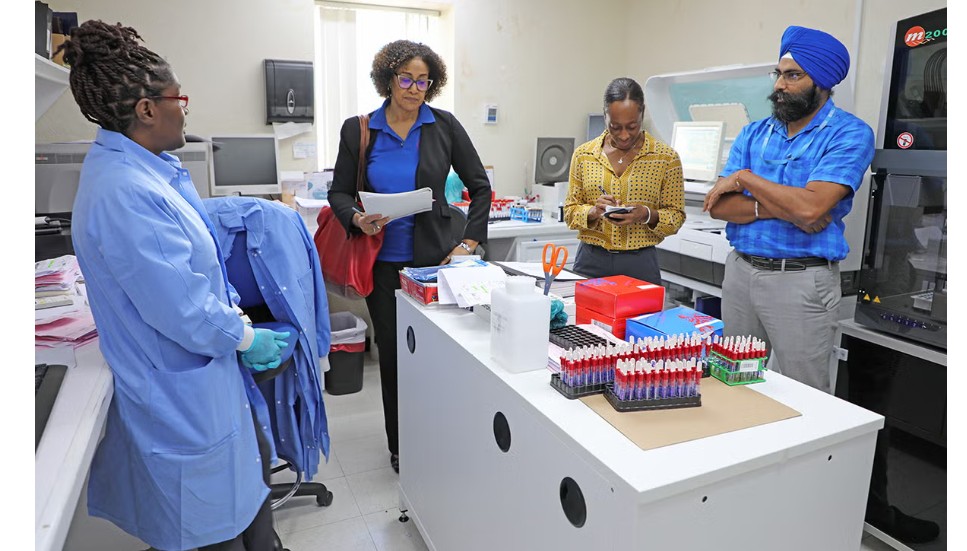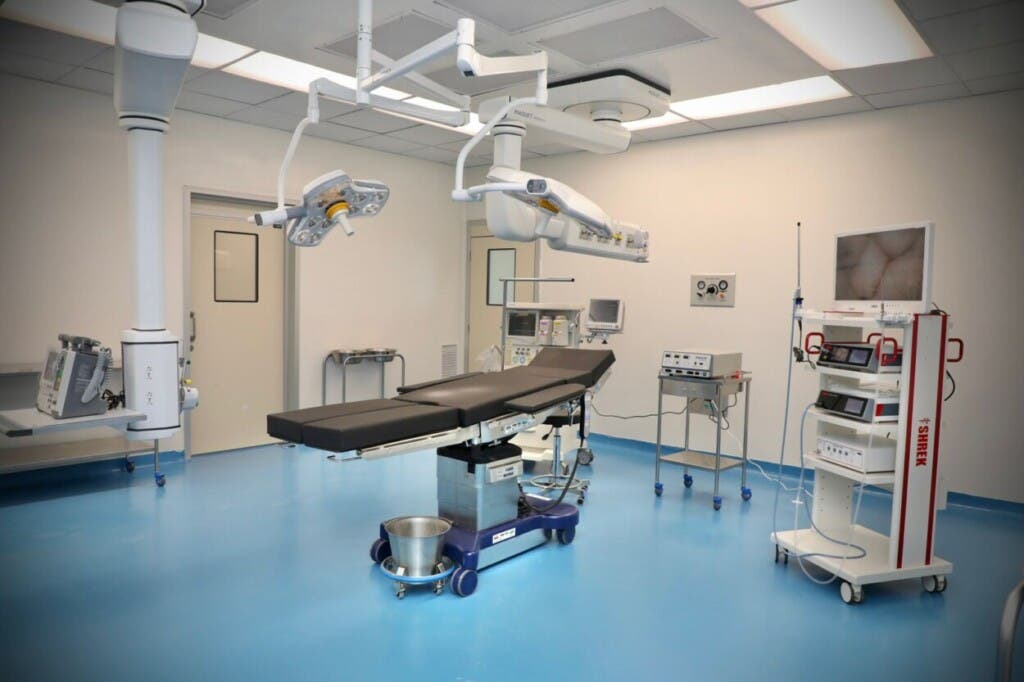Barbados is set to become the 12th Caribbean nation officially recognised for eliminating mother-to-child transmission of HIV by the end of 2025, following a pre-assessment by the Pan American Health Organisation (PAHO) that found strong progress and commitment across the island’s health services.
The elimination of mother-to-child HIV transmission — known as EMTCT — includes stepped-up efforts to protect mothers and babies from syphilis and hepatitis B.
The certification, expected by year-end, follows similar declarations in Belize, Jamaica, and St Vincent and the Grenadines last year. Cuba blazed the trail a decade ago, as the world’s first, by simultaneously preventing the spread of both HIV and syphilis from mother to child.
A PAHO team, accompanied by a regional laboratory expert, joined a national health team to conduct a pre-assessment exercise from Tuesday to Friday last week, PAHO said in a release. The review mirrors an official EMTCT evaluation and aims to identify gaps and challenges before a formal certification mission.
During the visit, the PAHO delegation met senior health officials to outline objectives and share preliminary findings, the hemispheric health agency said. They toured health facilities — including the Queen Elizabeth Hospital, polyclinics, and a private medical centre — to assess services for pregnant and lactating women, and inspected laboratories to ensure testing and diagnostics meet international standards.
The exercise allowed the teams to review HIV services, maternal and child clinics, vaccination and treatment programmes, and disease surveillance systems critical to preventing mother-to-child transmission of HIV, syphilis, and hepatitis B. They also offered recommendations to strengthen service delivery.
“Achieving EMTCT certification would be a national milestone for Barbados,” said Dr Amalia Del Riego, PAHO/WHO Representative for Barbados and the Eastern Caribbean Countries.
“It demonstrates the strength of Barbados’ HIV services. It also shows the quality of public health services and especially maternal and child health (MCH) and sexually transmitted infection (STI) services, and their commitment to ensure that every child has the healthiest start in life. The private health sector also plays a fundamental role in the health system and is an important pillar in achieving universal health coverage and sustainable development.
“For PAHO, the sum of all these services is critical to ensure health equity, strengthen health systems, and improve the population’s health. Providing support to Barbados in this elimination process is an important dimension for PAHO, aiming to ensuring no missed opportunities for prevention of diseases.”
Certification by the World Health Organisation (WHO) confirms that a country has robust systems to prevent HIV, syphilis, and hepatitis B transmission from mother to child, and demonstrates the delivery of high-quality, accessible care for pregnant women and newborns.
(SZB)
The path to ending mother-to-child transmission
Eleven Caribbean countries have achieved PAHO/WHO international certification for the elimination of mother-to-child transmission of HIV and syphilis as of 2024:
● Cuba: 2015 (first country in the world to achieve dual elimination of mother-to-child transmission of HIV and syphilis)
● Anguilla: 2017
● Antigua and Barbuda: 2017
● Bermuda: 2017
● Cayman Islands: 2017
● Montserrat: 2017
● St Kitts and Nevis: 2017
● Dominica: 2021
● Belize: 2024
● Jamaica: 2024
● St Vincent and the Grenadines: 2024
The post Mother-to-child HIV transmission ending in Barbados – WHO appeared first on Barbados Today.


